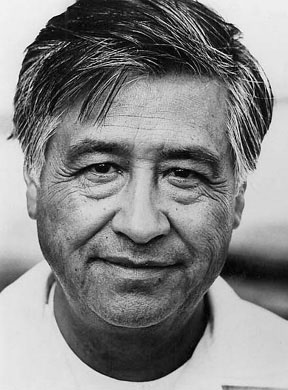No, An Old Jail is NOT a Fitting Tribute to Cesar Chavez…
Sometimes I just have to shake my head as I wonder: “what are these folks thinking?” I read an article suggesting that the National Park Service is considering an old jail as a tribute to the legacy of Cesar Chavez.
The old Monterey County Jail — where Cesar Chavez was held at the height of the Salinas Valley’s farm labor unrest in the 1970s — is on a list of sites being considered by the National Park Service for honoring the farm labor leader.
The sites, stretching from California to Arizona, are listed as part of a Park Service study examining the best way to preserve and commemorate Chavez and the history of the farm labor movement.
According to its website, the Park Service “has been directed by Congress to conduct a “special resource study” of sites significant to the life of Cesar E. Chavez and the farm labor movement in the western United States.” The website says Chavez is recognized as the most important Latino leader in the 20th century.
Chavez spent all of two-weeks locked up at the Monterey County jail in December 1970:
During his two-week incarceration in December 1970 for refusing to call off a lettuce boycott against Salinas Valley growers, Chavez was visited by Coretta Scott King, widow of The Rev. Martin Luther King Jr.; and Ethel Kennedy, widow of slain U.S. senator and 1968 presidential candidate Robert F. Kennedy.
 This is plain ridiculous to me and I sincerely hope that the National Park Service will find another site to honor the legacy of this most important American leader of labor rights and overall social justice. Chavez’s legacy should not be defined by a short stint in jail (though that should be recounted in any consideration of his overarching life history). I do not say this because I think that there is anything wrong with his having been incarcerated for taking a principled stand. Instead, it is my belief that there are likely many other locations that will focus on his actual positive contributions to the United Farm Workers of America. Let the Park Service consider those as a tribute to Mr. Chavez’s tireless organizing.
This is plain ridiculous to me and I sincerely hope that the National Park Service will find another site to honor the legacy of this most important American leader of labor rights and overall social justice. Chavez’s legacy should not be defined by a short stint in jail (though that should be recounted in any consideration of his overarching life history). I do not say this because I think that there is anything wrong with his having been incarcerated for taking a principled stand. Instead, it is my belief that there are likely many other locations that will focus on his actual positive contributions to the United Farm Workers of America. Let the Park Service consider those as a tribute to Mr. Chavez’s tireless organizing.
One of my favorite quotes attributed to Chavez is as follows:
“Once social change begins, it cannot be reversed. You cannot uneducate the person who has learned to read. You cannot humiliate the person who feels pride. You cannot oppress the people who are not afraid anymore. We have seen the future, and the future is ours.”
